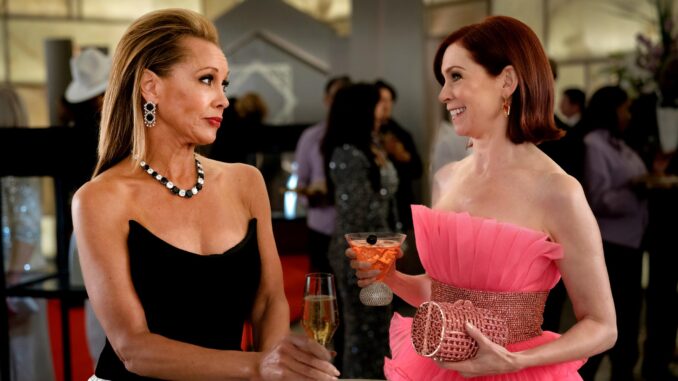
In the bustling, often chaotic world of television, few characters dance with the delightful unpredictability of Elsbeth Tascioni. A charming, off-kilter attorney turned NYPD consultant, Elsbeth, as portrayed by the inimitable Carrie Preston, has always been a beacon of offbeat brilliance. Her signature blend of folksy charm, non-sequiturs, and razor-sharp deduction has endeared her to audiences, establishing her as a unique and seemingly transparent force for good. We thought we knew her – a walking, talking kaleidoscope of observation and benign eccentricity. Then came that episode, that moment, a major character reveal that didn't just stun the audience; it recalibrated our entire understanding of Elsbeth, transforming a beloved procedural into a must-see event of shocking depth.
For seasons, whether in her spin-off or her originating roles in The Good Wife and The Good Fight, Elsbeth's genius appeared almost accidental, a delightful byproduct of her unconventional thought processes. She'd trip over clues, her seemingly random observations would unlock complex conspiracies, and her wins felt like the universe aligning for a truly good, if slightly kooky, soul. This was her established paradigm: the quirky savant whose brilliance was cloaked in an endearing, almost childlike wonder. We watched her fumbling with technology, marveling at everyday objects, and felt a warm kinship with her unique perspective. She was the delightful chaos agent, always one step ahead, but seemingly without knowing quite how.
The groundwork for the reveal, in hindsight, was laid with subtle tremors. There were moments where her "luck" seemed too perfect, her "accidental" discoveries too convenient. A fleeting flicker in her eyes, a calculated pause before a seemingly innocuous remark. We dismissed them as quirks, manifestations of her unique brain. We were lulled into a comfortable certainty, expecting another delightful caper where Elsbeth, through sheer Elsbeth-ness, would stumble upon the truth.
Then came the climactic episode of the season, a case so intricately woven that it seemed impossible for even Elsbeth to untangle. The stakes were higher, the villains more cunning. The final act was a breathtaking chase, culminating in what appeared to be another Elsbeth "accident" – a dropped item, a misspoken word, leading to the villain's capture. The audience exhaled, ready for the signature Elsbeth wrap-up, the quirky summation, the reassuring return to normalcy.
But it didn't come.
Instead, the scene shifted. Elsbeth was alone in her office, the cheerful, slightly disheveled space we had come to associate with her. She wasn't humming, or examining a rubber band, or tidying a stray paperclip. She was sitting perfectly still, facing away from the camera, looking at a series of complex, interlinking flowcharts and timelines pinned to a hidden board behind a large, decorative map. The usual vibrant colors of her clothes seemed muted in the stark glow of her desk lamp.
As the camera slowly zoomed, a single, clear, utterly devoid of her usual inflection, word escaped her lips. "Checkmate."
It was a whisper, a declaration, and a revelation all at once. Her hand, which moments before had "accidentally" dislodged the vital piece of evidence, moved with calculated grace to a specific point on the flowchart, a red marker precisely hitting a node labeled "Trigger Event – Phase 3." Her eyes, usually twinkling with benign curiosity, were now hard, focused, holding a cold, almost terrifying clarity. The whimsical Elsbeth we knew vanished, replaced, if only for a few breathtaking seconds, by an architect, a strategist, a master puppeteer pulling strings we never knew existed.
The collective gasp from the audience was almost palpable across living rooms. The floor had collapsed beneath our feet. Every previous interaction, every "lucky" break, every "accidental" observation replayed in our minds, now recontextualized. Her seemingly chaotic methods weren't chaos at all, but a meticulously constructed facade, a brilliant performance designed to make her opponents, and us, underestimate her true strategic depth. She wasn't just solving crimes; she was orchestrating outcomes. She wasn't just observing the game; she was playing it on a level we hadn't even conceived.
This wasn't just a twist; it was a seismic shift in the show's entire premise. It transformed Elsbeth from a lovable eccentric into a figure of enigmatic power, her motives suddenly ambiguous, her past an open question mark. Was she still purely good? Or was her understanding of justice and its execution far more cynical, far more Machiavellian than her charming exterior suggested? The reveal didn't answer questions; it birthed a thousand more, shattering our comfortable perceptions and demanding immediate re-evaluation of every episode that came before.
This "must-see moment" resonated because it struck at the core of character perception. It reminded us that even in the most familiar narratives, there can be hidden depths, secret selves, and an intricate dance of persona and truth. It's the kind of storytelling that elevates a good show to a great one, cementing its place in the pantheon of television history. Elsbeth Tascioni, the delightful detective, had unveiled herself, for one terrifying, exhilarating moment, as something far grander, far more complex, and utterly unforgettable. And as the credits rolled, the audience was left not just stunned, but thrillingly eager to see what other carefully constructed illusions Elsbeth would shatter next.
